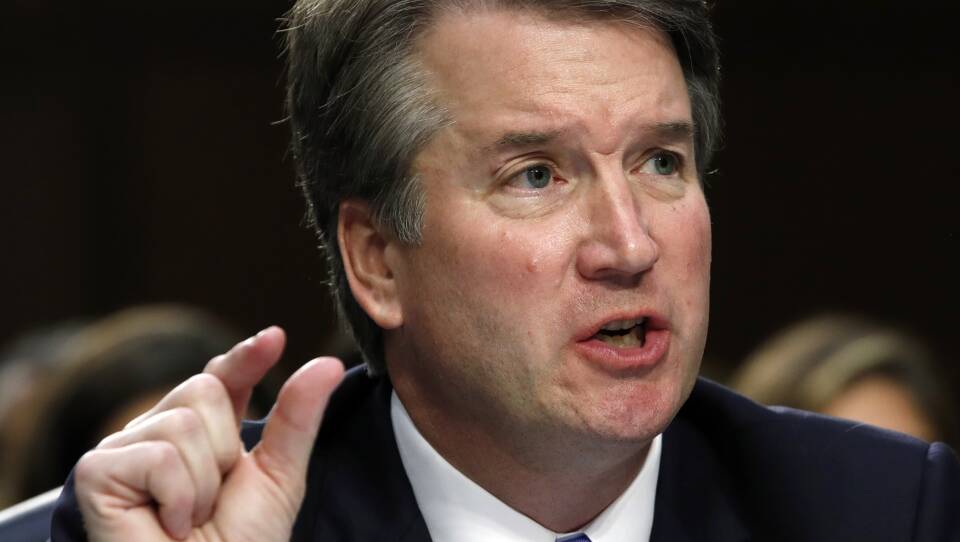On Saturday, the Senate voted to confirm Brett Kavanaugh to the Supreme Court. Given the controversy over his confirmation, what might the future hold for him and for the legitimacy of his decisions? Could he face consequences if the Democrats regain control of the House or Senate in the midterm elections? WGBH's Morning Edition Anchor Joe Mathieu discussed these issues and more with WGBH Legal Analyst and Northeastern Law Professor Daniel Medwed. The transcript below has been edited for clarity.
Joe Mathieu: Now, you were one of more than 2,400 law professors around the country who signed a letter urging the Senate not to elevate Brett Kavanaugh to the Supreme Court. What was the basis for your decision, initially, to sign on?
Daniel Medwed: For me, it really boiled down to two things: first, Dr. Ford's testimony before the Senate Judiciary Committee was very credible. She made a very credible allegation of sexual assault, which raised serious red flags about Brett Kavanaugh's suitability for elevation to the Supreme Court. Second, Brett Kavanaugh's own testimony struck me as petulant and undignified in a way that I haven't seen before. So it wasn't about judicial philosophy or political leanings. I accept the fact that the political party in power controls the confirmation process. But rather, it was about his past actions and current temperament, and what they mean in terms of his future performance on the bench. I think there are going to be lingering concerns about his legitimacy and that time might not heal these wounds.
Joe Mathieu: And time certainly might not heal them, Daniel, especially if there are future consequences for his behavior — I want to ask you about that. If that hearing had been in a courtroom, could he have been found in contempt of court?
Medwed: Well, that's an interesting question. There are various forms of contempt: criminal, civil, and constructive, and basically they relate to the idea of someone being disrespectful, discourteous to a judge. A judge has a lot of leeway in determining whether someone should be held in contempt. It's a relatively minor infraction, but it has some symbolic significance. So had Kavanaugh engaged in these outbursts in a court of law — had he asked a judge, demanded, whether a judge liked beer, as he did with Sheldon Whitehouse during the hearing, then I think a judge would be within her discretion in finding him in contempt.
Mathieu: We're talking with WGBH News Legal Analyst Daniel Medwed. What about the possibility, Daniel, of impeaching him? We've been hearing a lot of talk about that from some Democrats.
Medwed: Well, of course a Supreme Court justice enjoys a lifetime appointment, subject to good behavior, and the commission of a high crime or misdemeanor could jeopardize that good behavior provision and lead to impeachment proceedings. Now the lack of a firm definition of what is a high crime and misdemeanor means that the impeachment process has tremendous political overtones. The process for impeaching a federal judge mirrors that of a president. A majority of the House must vote to issue an indictment of impeachment. And then there is a trial in the Senate, where a super majority — two thirds of the Senate — must vote to convict in order for the person to be removed from office.
Mathieu: Has that actually ever happened for a sitting Supreme Court justice, Daniel, is there precedent for that?
Medwed: Well, the one time it's happened, I think, really underscores the political nature of judicial impeachment. George Washington had appointed a federalist judge, Samuel Chase. Chase was quite controversial. He was considered to have very partisan views, at least according to Thomas Jefferson. So Thomas Jefferson led a charge to impeach him. The House did vote to impeach him but he survived the Senate trial and he remained in office until 1811. There have been 15 lower court impeachment proceedings against federal judges. Eight of them resulted in the Senate voting to remove the person from the bench. And when you look at those eight cases, there's a very important trend, which is that it seems like a pre-existing criminal conviction is almost required. Not required, but seems to be present, in order to spur the Senate to have the requisite bipartisan support to lead to a removal proceeding. So if Brett Kavanaugh is eventually convicted of a sex crime or perjury or something else, then maybe there will be enough to lead to impeachment. But short of that, frankly, I don't see it happening.





